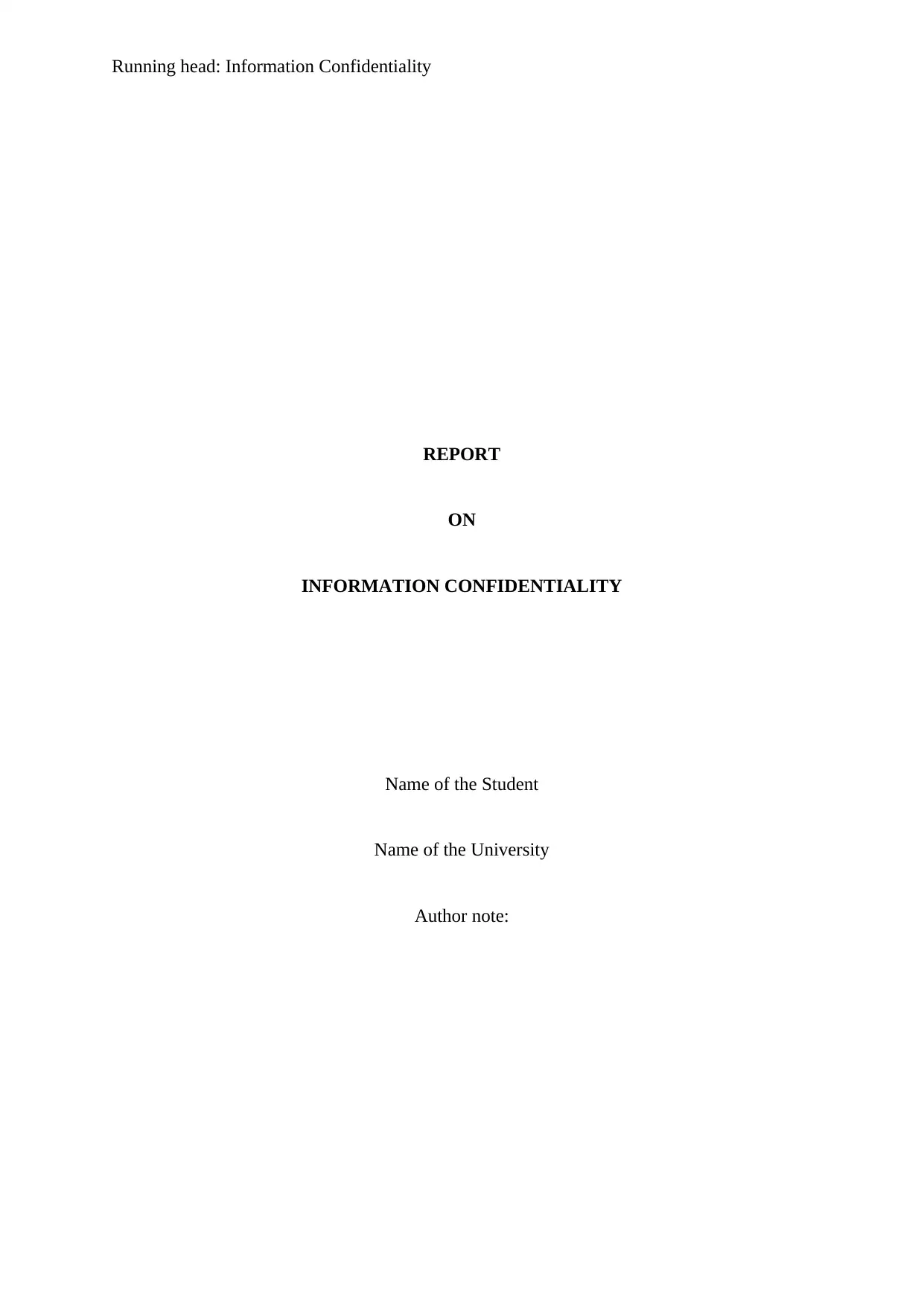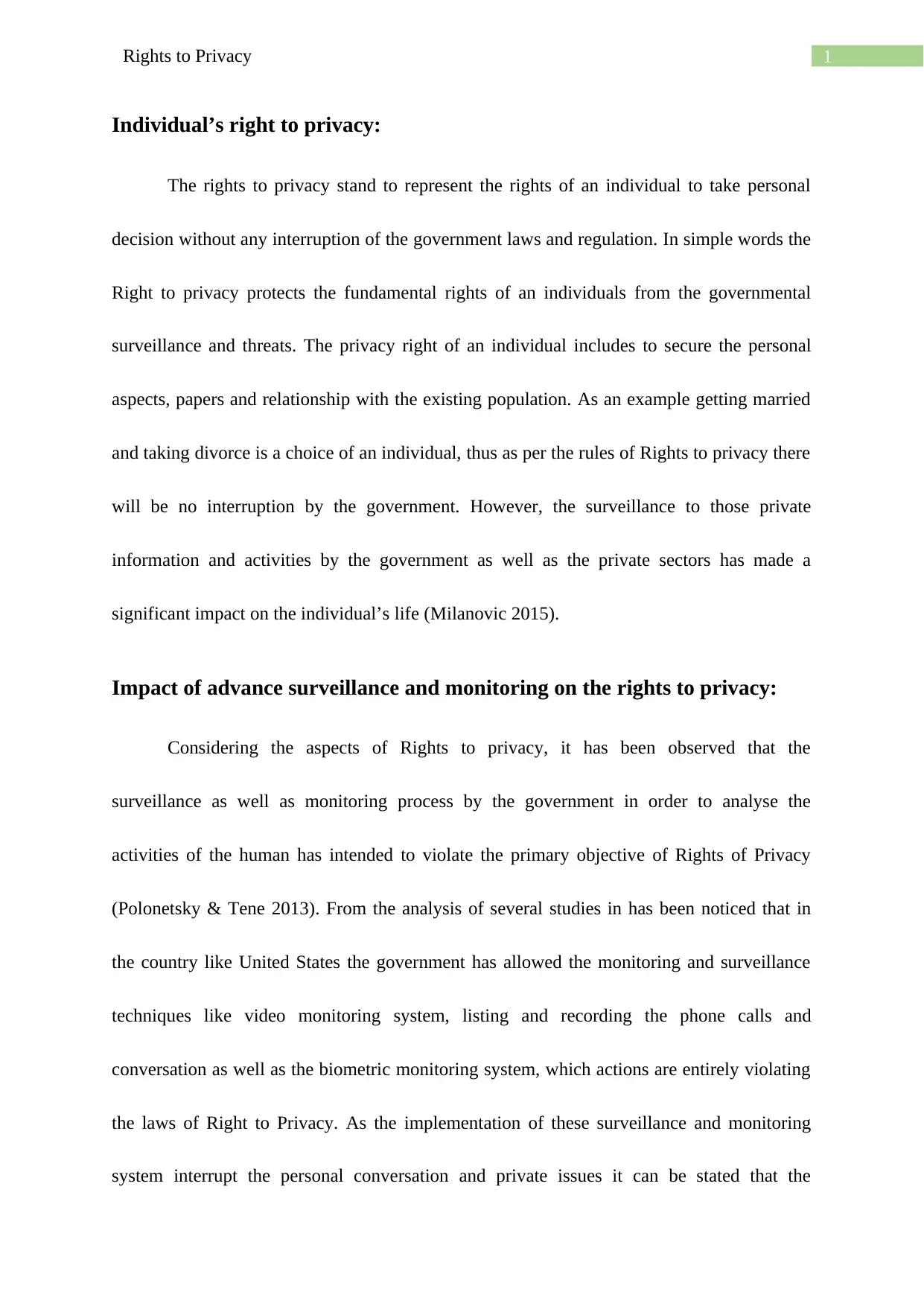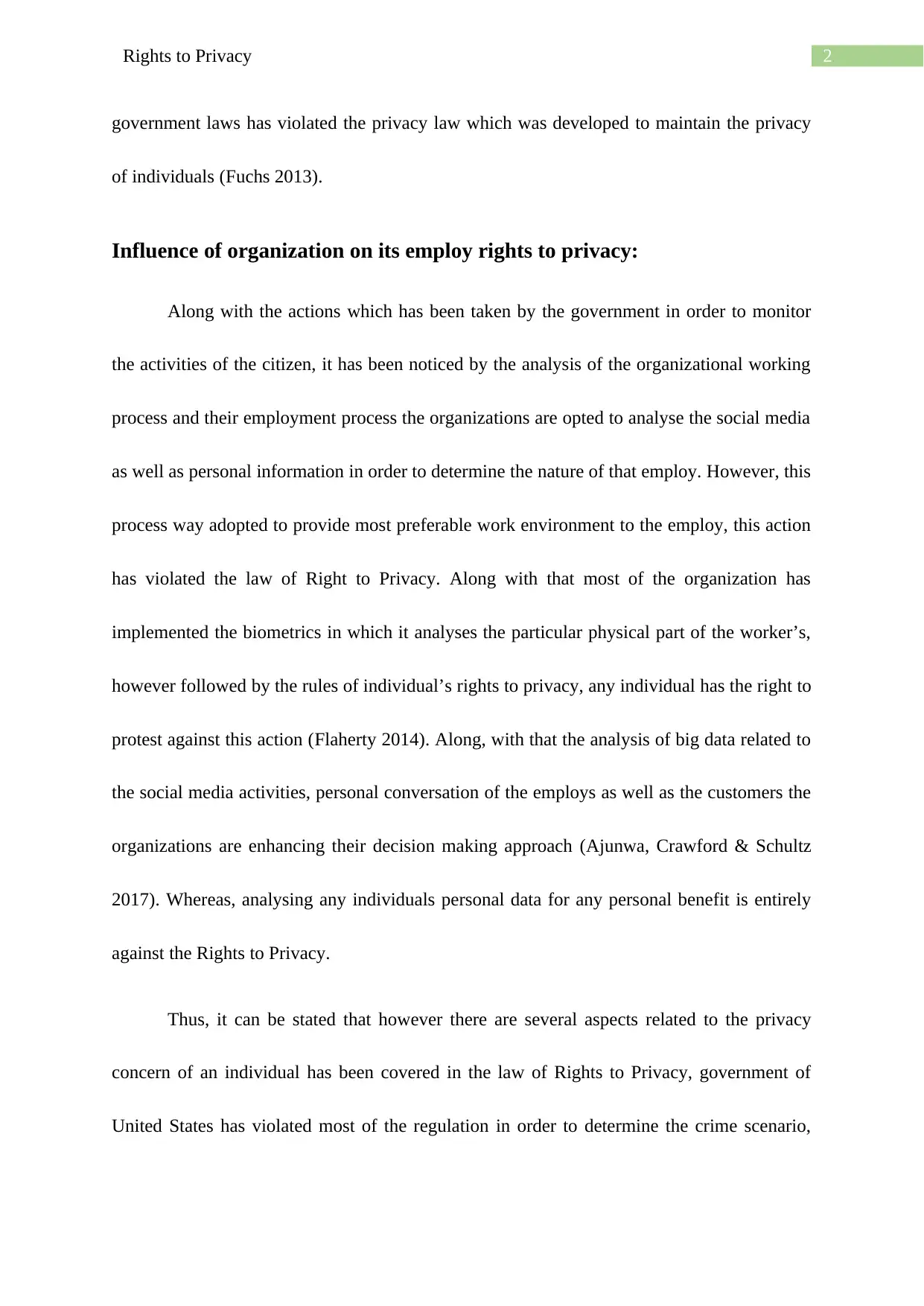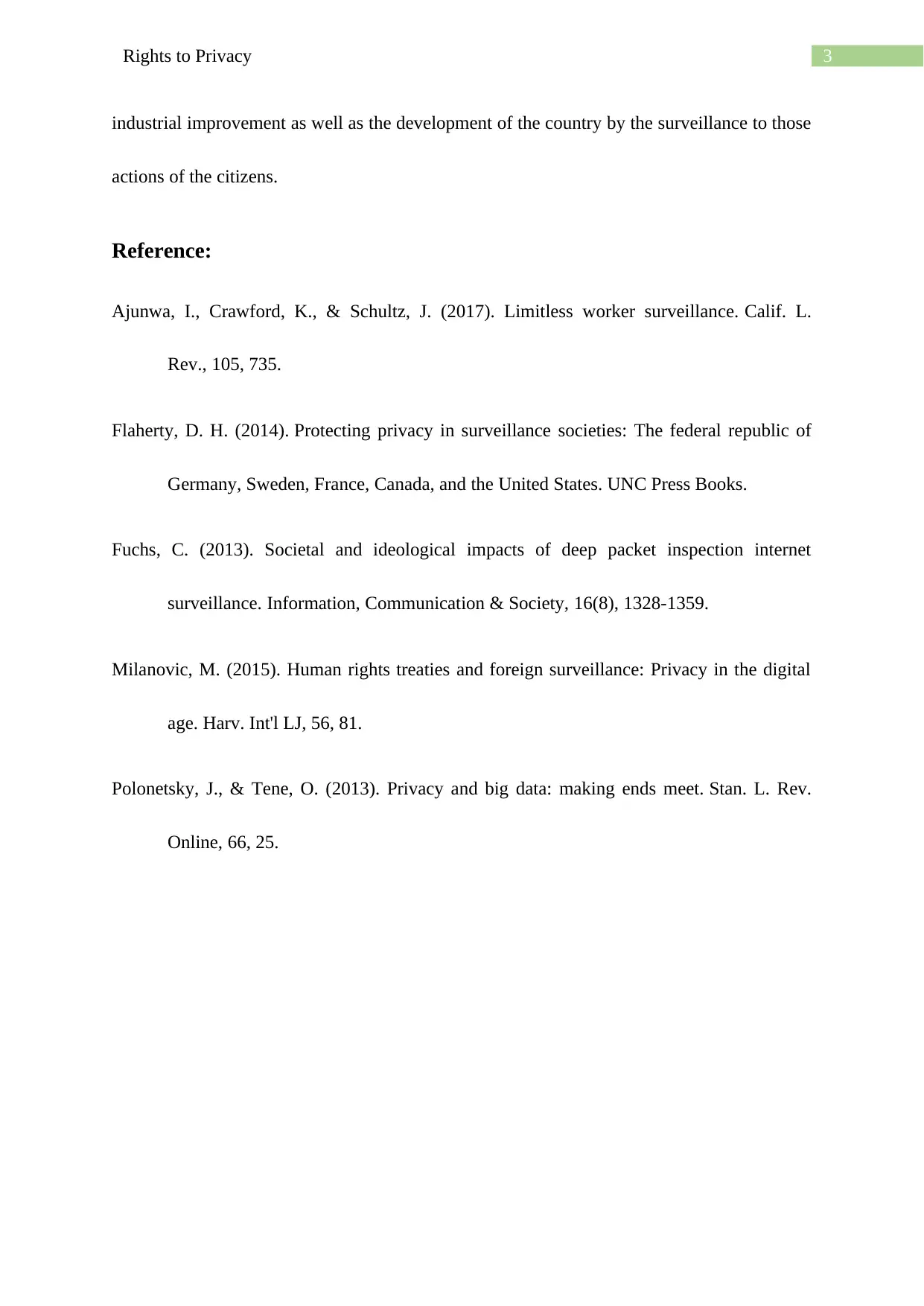Analyzing Information Confidentiality: Individual Rights to Privacy
VerifiedAdded on 2023/04/21
|4
|783
|229
Report
AI Summary
This report examines the critical aspects of information confidentiality and individual rights to privacy, focusing on the impact of advanced surveillance technologies and organizational practices. It highlights the conflict between governmental and private sector surveillance, such as video monitoring and social media analysis, and the fundamental rights of individuals. The report references United States practices, noting potential violations of privacy laws due to surveillance for crime prevention and industrial development. It also addresses how organizational analysis of employee data impacts privacy rights, emphasizing the importance of upholding individual protections against intrusive monitoring. This document is available on Desklib, a platform providing study tools and resources for students.
1 out of 4











![[object Object]](/_next/static/media/star-bottom.7253800d.svg)